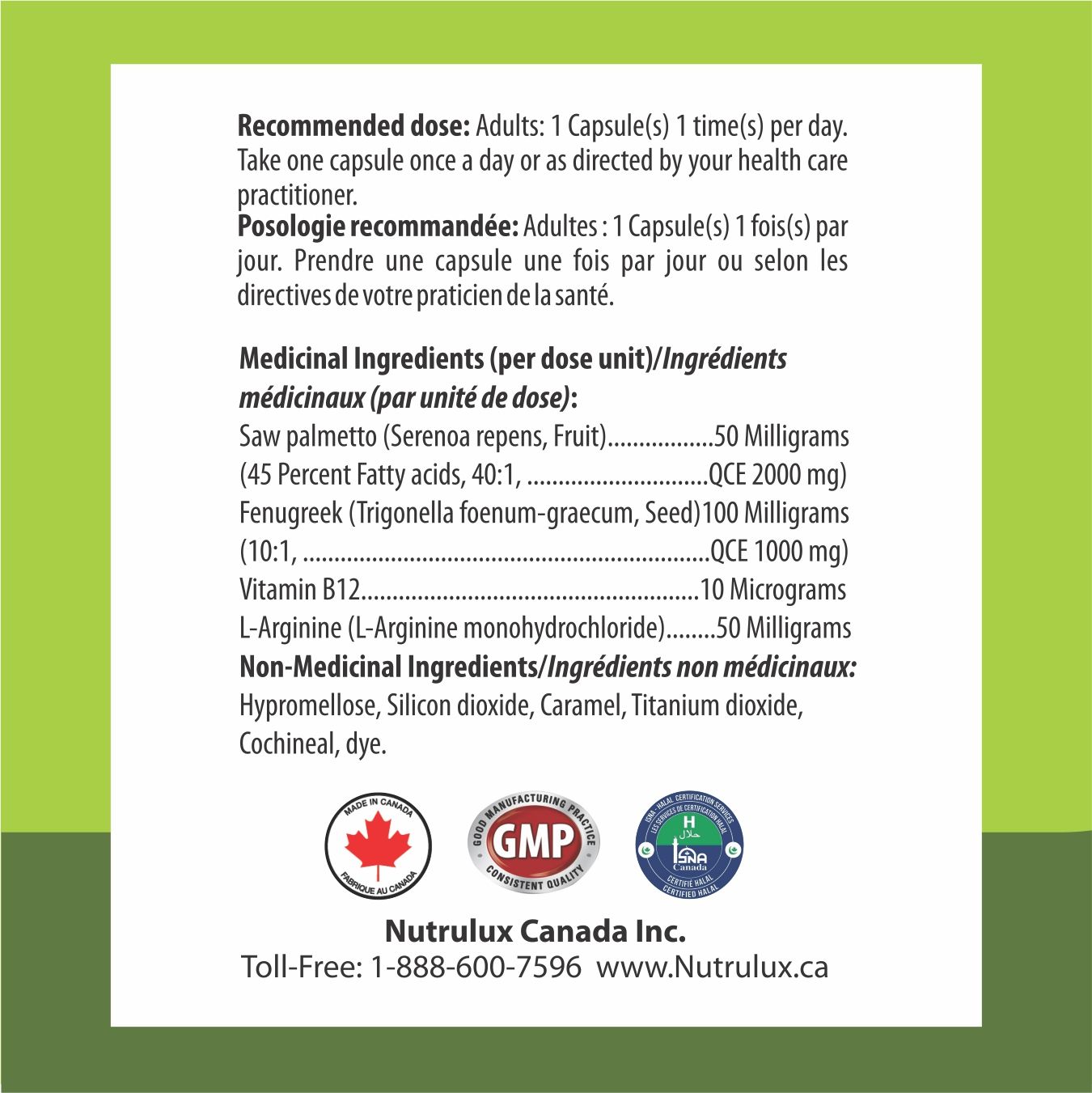For Him Bundle ( 1000mg Fish Oil & 10 mg Vitamin B12 ) Halal Gelatin Free
$30.98
When we exercise, our bodies use three main sources of fuel: carbohydrates, fat, and protein. Carbohydrates, which are stored in the liver and skeletal muscles in the form of glycogen, provide the most efficient source of energy during exercise. Glycogen can be easily metabolized into glucose, which provides immediate energy to fuel the brain, nervous system, and muscles during exercise.
Recommended dose: Adults: 1 Capsule(s) 3 time(s) per day.
Recommended use or purpose: Helps support/maintain
(normal) heart/cardiovascular health/function. Source of omega-
3 fatty acids for the maintenance of good health. Helps support/
maintain eye and normal brain health/function.
Risk Information: Cautions and Warnings: Consult a health care
practitioner prior to use if you are taking blood thinner (warfarin,
heparin or coumarin), herbs with anticoagulant activity, and/or
anti-hypertensive drugs. Do not use if you are pregnant or
breastfeeding.
Medicinal Ingredients: (per dose unit)
Fish oil (fish oil fish – Whole) 1000 Milligrams (300 Milligrams
Eicosapentaenoic acid, 200 Milligrams Docosahexaenoic acid).
Non-Medicinal Ingredients: Glycerin, Purified water.
Store in airtight container, protected from light. Refrigerate after
opening.

Description
What is Omega 3?
Omega-3s are a family of essential fatty acids that play important roles in your body and may provide a number of health benefits. As your body cannot produce them on its own, you must get them from your diet. The three most important types are ALA (alpha-linolenic acid), DHA (docosahexaenoic acid), and EPA (eicosatetraenoic acid). ALA is mainly found in plants, while DHA and EPA occur mostly in animal foods and algae. Common foods that are high in omega-3 fatty acids include fatty fish, fish oils, flax seeds, chia seeds, flaxseed oil, and walnuts. For people who do not eat much of these foods, an omega-3 supplement, such as fish oil or algal oil, is often recommended.
What are stay fit and healthy supplements?
When we exercise, our bodies use three main sources of fuel: carbohydrates, fat, and protein. Carbohydrates, which are stored in the liver and skeletal muscles in the form of glycogen, provide the most efficient source of energy during exercise. Glycogen can be easily metabolized into glucose, which provides immediate energy to fuel the brain, nervous system, and muscles during exercise.
When we exercise, our bodies use three main sources of fuel: carbohydrates, fat, and protein. Carbohydrates, which are stored in the liver and skeletal muscles in the form of glycogen, provide the most efficient source of energy during exercise. Glycogen can be easily metabolized into glucose, which provides immediate energy to fuel the brain, nervous system, and muscles during exercise. The body’s glycogen supply can provide enough fuel for 90–120 minutes of vigorous activity. The depletion of glycogen stores in the body creates the feeling of “hitting a wall” during exercise. As glycogen stores are depleted, the body begins to break down fat to burn for fuel, especially during low- to moderate-intensity activity. In the latest stages of prolonged exercise when glycogen stores are at their lowest, the body begins to break down skeletal muscle protein for glucose production. Physical activity can also induce muscle growth, also known as hypertrophy. Weightlifting and other resistance training exercises are commonly used to increase skeletal muscle mass, but cardiovascular exercise like running can also spur muscle growth. Physical activity causes structural damage to muscle fibers, especially when muscles are challenged with multiple repetitions of heavy weights. The body’s repair response involves fusing broken muscle fibers together to form new muscle protein strands, which in turn increases muscle size. A variety of factors influence how rapidly muscles grow with exercise, including the amount of weight lifted and the number of repetitions.

















